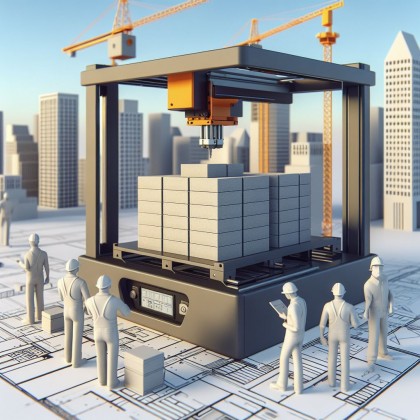Transforming Construction - Innovation of construction processes and materials through 3D Printing

The construction sector has a significant environmental, energy, and economic impact, exploiting 50% of raw materials, consuming 40% of the total energy consumed, and generating 50% of waste. Moreover, it is the largest contributor to greenhouse gas emissions, accounting for 39% of the total.
Therefore, the construction sector plays a crucial role in developing technologies to minimize environmental impact, energy consumption, and CO2 footprint.
Among the emerging technologies, 3D printing based on cement stands out, involving layer-by-layer deposition to form a three-dimensional object. Recent studies show that 3D printing can reduce execution time by up to 70%. Additionally, it significantly reduces waste at the construction site, reaching up to 60% less waste. Better control over the quantities used in construction leads to less surplus in material purchases, reducing costs.
3D printing is in its early stages compared to traditional methods, with material development and process optimization as primary routes for improvement. New materials meeting 3D printing's technical requirements, such as rheology, extrudability, and buildability, need to be developed, along with advanced 3D printing systems.
Despite the environmental improvements offered by 3D printing, the primary material used is traditional Portland cement, known for its good mechanical properties, cost-effectiveness, and durability. However, its extraction is associated with significant CO2 emissions, particle emissions, water pollution, and waste and noise generation.
The AUTOCON project, initiated in October 2023, aims to research and develop innovative technologies for 3D printing in concrete. Addressing material and process limitations, the project focuses on developing sustainable base-cement materials and improving current extrusion mixing and finishing systems. The project is executed in collaboration with a consortium of companies characterized by a multidisciplinary approach and national scope, with a total budget of €1,050,155.
CTCON will contribute to the project by working with consortium companies, the Eduardo Torroja Institute of Construction Sciences, Montalbán y Rodríguez, AYMAR, AIDIMME, and BE MORE 3D, in developing new base-cement materials for 3D printing to enhance the additive manufacturing process.